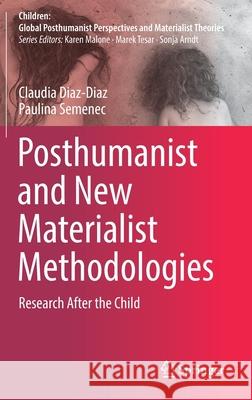Posthumanist and New Materialist Methodologies: Research After the Child » książka
topmenu
Posthumanist and New Materialist Methodologies: Research After the Child
ISBN-13: 9789811527074 / Angielski / Twarda / 2020 / 224 str.
Posthumanist and New Materialist Methodologies: Research After the Child
ISBN-13: 9789811527074 / Angielski / Twarda / 2020 / 224 str.
cena 402,53
(netto: 383,36 VAT: 5%)
Najniższa cena z 30 dni: 385,52
(netto: 383,36 VAT: 5%)
Najniższa cena z 30 dni: 385,52
Termin realizacji zamówienia:
ok. 16-18 dni roboczych.
ok. 16-18 dni roboczych.
Darmowa dostawa!
Kategorie:
Kategorie BISAC:
Wydawca:
Springer
Seria wydawnicza:
Język:
Angielski
ISBN-13:
9789811527074
Rok wydania:
2020
Wydanie:
2020
Numer serii:
000854800
Ilość stron:
224
Waga:
0.52 kg
Wymiary:
23.39 x 15.6 x 1.6
Oprawa:
Twarda
Wolumenów:
01
Dodatkowe informacje:
Wydanie ilustrowane











